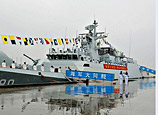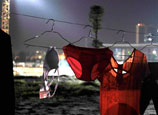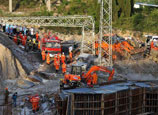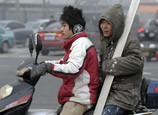
HANGZHOU, May 21 (Xinhua) -- In the eyes of Irina Bokova, director-general of United Nations Educational, Scientific and Cultural Organization (UNESCO), culture plays a huge important role in all the discussion about development.
Bokova shared her view on culture and cultural protection in an interview with Xinhua at the UNESCO's International Congress of Hangzhou held last week.
She said at the Rio+20 conference on sustainable development last year, world leaders reached the "Future We Want" document, defining the future development in three aspects -- the economic aspect, the environmental aspect of development and the social aspect.
"Within these developments, all the three, we believe that culture plays a role," said the UNESCO director-general.
She said culture can create jobs. It creates the cohesion of the society, overcome poverty, and bring a lot more social mobility. Cultural knowledge may bring particular solutions to environmental protection.
UNESCO concluded the International Congress of Hangzhou on Friday by issuing a declaration recognizing the power of culture for sustainable development.
The declaration calls upon the world to integrate culture into all development policies and plans, facilitate cultural development, mutual cultural understanding and cultural reconciliation, safeguard the cultural rights of all to promote inclusive social development, and boost the role of culture in poverty reduction and inclusive development.
Bokova said China was among the countries that had one of the highest numbers of world heritage sites.
"China has made an incredibly enormous effort to protect, to conserve, to pass these sites to the future generations," she said.
She particularly cited the West Lake in Hangzhou, which is a world heritage site, as a good example of building belongings to the local communities. It makes the local communities close to what they own and what they believe to make them part of the protection.
"World heritage has a message. It's not just stones and bricks or beautiful landscapes. It's the message of dialogue coming out of cultures, of culture diversity. Sometimes it's the message of reconciliation; sometimes it's the message of human dignity, of human creativity, of the history of development," she said.
All these make a heritage something that is valued more and more in this world, especially when related countries have the pressure of modernization and globalization, according to Bokova.
However, the heritages are under threat. Bokova said her organization has found a number of cases where climate change is destroying historical sites and has a toll on them. In addition, the needs for urban settings for modernization and construction also have negative impacts.
"We always alert authorities in local communities that first and foremost, in any project for modernization, the authenticity of the world heritage site should have a priority over any other single projects," she said.
She said UNESCO's work can only become successful, when politicians believe in long terms the benefits of protecting world heritage would overweight any other considerations.
Bokova saw culture industries as creative industries that not only contribute to GDP growth, but also to showcase their role to bring about inclusion and social cohesion in societies, as well as social mobility and gender equality.
















 University doors open for its security guards
University doors open for its security guards


![]()
